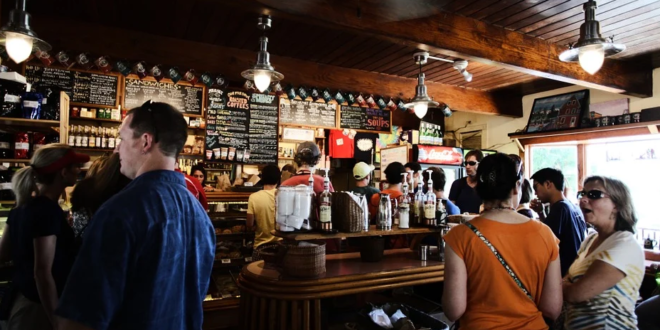In the heart of British culture, pubs hold a cherished place as social hubs where friends and family gather to enjoy a pint, share stories, and relax. However, in recent years, many UK pubs have been grappling with the idea of charging more during peak hours to cope with rising costs and changing consumer habits. This article explores the merits and drawbacks of such a pricing strategy.
The Challenge of Rising Costs
Running a pub in the UK has become an increasingly challenging endeavor. Rising overheads, including rent, wages, and utilities, have placed considerable financial pressure on pub owners. Brexit-related uncertainties and the impact of the COVID-19 pandemic have further complicated matters, causing many pubs to struggle to stay afloat.
As a response to these financial pressures, some pub owners have contemplated charging more for their drinks during peak times. This strategy, commonly referred to as surge pricing or dynamic pricing, is already prevalent in other industries such as transportation and entertainment. It involves adjusting prices based on demand to maximize revenue and improve profitability.
The Argument for Surge Pricing
- Sustainability: Charging more during peak hours can help pubs ensure their long-term viability. By generating more revenue during high-demand periods, they can offset losses during quieter times.
- Investment and Quality: Additional revenue can be reinvested in the pub to enhance the overall experience. This may include improvements to the interior, live entertainment, or a wider selection of drinks.
- Staff Benefits: Increased revenue can be used to provide better wages and working conditions for pub staff, improving job satisfaction and retention.
- Reducing Overcrowding: Higher prices during peak times may discourage overcrowding, leading to a more comfortable and enjoyable atmosphere for patrons.
The Concerns and Criticisms
- Customer Backlash: Implementing surge pricing in pubs could lead to negative customer reactions. Pubs are cherished for their accessibility and affordability, and any abrupt changes to pricing structures may alienate loyal customers.
- Social Impact: Pubs have traditionally been egalitarian spaces, where people from all walks of life can come together. Charging more during peak times might deter certain groups, creating an unwelcome divide.
- Reputation Risk: Overly aggressive pricing strategies can damage a pub’s reputation and lead to negative publicity. The backlash from customers on social media can be swift and damaging.
- Ethical Considerations: Many argue that charging more during peak hours exploits the desire for social interaction, taking advantage of customers’ willingness to pay for a sense of community.
Finding a Middle Ground
To address the challenges of rising costs while maintaining the essence of the British pub, a compromise might be the key. Pubs could consider the following strategies:
- Variable Happy Hours: Offer discounts and promotions during traditionally quieter hours to encourage patrons to visit during non-peak times.
- Membership Programs: Introduce membership schemes that offer exclusive benefits, such as discounted drinks or priority seating, to loyal customers.
- Transparent Pricing: If surge pricing is implemented, ensure transparency in communicating pricing changes to customers to avoid any surprises.
- Community Engagement: Foster a sense of community and inclusivity by organizing events, quiz nights, or live music that encourage patrons to frequent the pub regularly.
The question of whether UK pubs should charge more at peak times is a complex and contentious issue. While the economic pressures on pub owners are real and significant, the social and cultural value of pubs in British society cannot be underestimated. Striking a balance between profitability and preserving the quintessential pub experience is essential to ensure the continued success and vitality of these beloved establishments. Ultimately, the solution may lie in innovative pricing strategies that keep the spirit of the local pub alive while adapting to the evolving demands of the modern world.
 Vino-Club For Wine Lovers
Vino-Club For Wine Lovers






